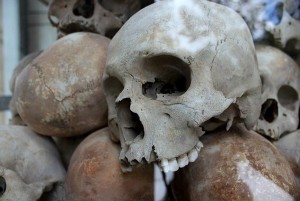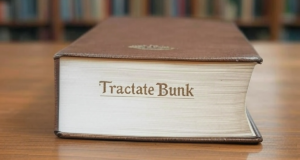Diplomats had hoped the region could transition from iron-fisted rule by hereditary dictatorships to iron-fisted rule by democratically-elected governments.
 Washington, March 29 – With the release of former Egyptian President Hosni Mubarak from prison today, staffers as the US Department of State voiced disappointment at the denouement of the vaunted Arab Spring, and confessed they had been looking forward to ridding the Middle East of despotic, genocidal regimes and facilitating their replacement with democratic, genocidal regimes.
Washington, March 29 – With the release of former Egyptian President Hosni Mubarak from prison today, staffers as the US Department of State voiced disappointment at the denouement of the vaunted Arab Spring, and confessed they had been looking forward to ridding the Middle East of despotic, genocidal regimes and facilitating their replacement with democratic, genocidal regimes.
Mubarak was ousted in early 2011 and subsequently put on trial for presiding over brutal military suppression of the protests that eventually led to his resignation. Elections brought a Muslim Brotherhood candidate to the helm, but continued social unrest led to another coup that placed a general in power in 2013. During the early days of the Arab Spring, Egypt, Libya, Tunisia, Yemen, Bahrain, Syria, and Morocco, to varying degrees, saw popular protests that led to outright uprisings, sparking hopes among locals and foreign diplomats that the region could transition from iron-fisted rule by hereditary dictatorships to iron-fisted rule by democratically-elected governments.
That vision, however, failed to pan out, with peaceful change taking place only in Tunisia. Elsewhere, the existing regimes either crushed the uprisings or continue to wage civil wars that have become proxy fights among Islamists, Iran, and the Sunni states of the Persia Gulf. The death toll in Syria alone has reached into the hundreds of thousands, leading policymakers at the State Department to lament the lost potential of a regional sociopolitical movement that could have brought to power democratic leaders to perpetrate all those atrocities and mass murders instead.
“It’s nothing short of a shame,” grieved Aidan Anabetten of the Middle East and North Africa Section. “Syrian dictator Basher Assad bears ultimate responsibility for close to half-a-million deaths and the displacement of millions, in the process committing every kind of crime against humanity and violations of the laws of armed conflict. The Saudi-Houthi-Irani conflict over Yemen has also cost tens of thousands of lives, not to mention the ongoing horrors of the Islamic State, Al- Qaeda, and myriad other tyrannical entities all over the region. Imagine what it could have been like to have those policies and crimes committed by democratic countries instead – can’t you just sense that things would be different?”
Anabetten and his colleagues took some measure of comfort, however, in noting that there was still one democratic nation in the midst of the chaos that could be counted on to face accusations of tyranny, apartheid, and overall evil. “Thank goodness we still have Israel to blame – I don’t know how we would form a coherent world view otherwise.”
Please support our work through Patreon.




